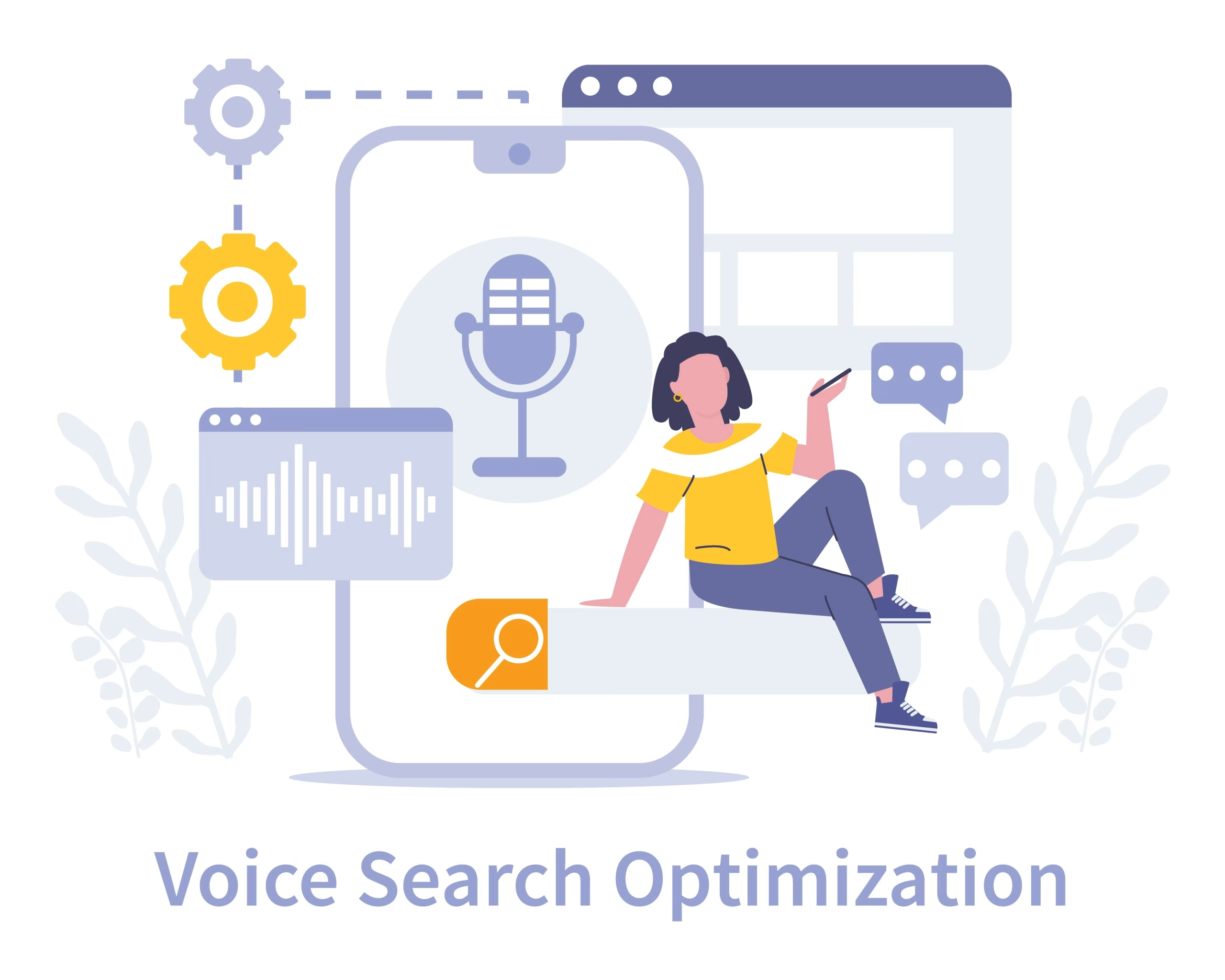How to Get Your Business Found on Voice Search
Have you ever wondered how clients searching for services like yours via voice assistants find their answers?

They might ask:
“Alexa, find the best law firm near me.”
“Hey Siri, can you recommend a reliable SEO agency in London?”
Or, “Ok Google, where can I find an accountant nearby?”
If your business isn’t optimised for voice search, chances are you’re missing out on these opportunities.
Voice search has rapidly become a key way people interact with technology. And professional services businesses must adapt to this growing trend.
In this guide, you’ll learn how voice assistants like Google Assistant, Siri, Alexa, and others get their information, why it matters to your business, and actionable steps to optimise your online presence for voice search success.
In this article:
Understanding the Big Five: Voice Assistants and Their Data Sources
Voice search assistants dominate the market by offering convenience, accessibility, and integration across various devices. Here’s a breakdown of the top players and where they source their data:
- Google Assistant
- Devices: Android smartphones, Google Nest speakers, and iOS apps.
- Primary Data Source: Google Business Profile (GBP).
- Why It’s Important: Google Assistant excels in local search, pulling detailed business information directly from GBP profiles.
- Amazon Alexa
- Devices: Echo smart speakers, Fire TVs, and third-party integrations.
- Primary Data Sources: Aggregators like Yelp, Yext, and Zagat.
- Why It’s Important: Alexa dominates the smart home market. If your business is listed on key platforms like Yelp, you’re more likely to be found.
- Apple Siri
- Devices: iPhones, iPads, MacBooks, and HomePods.
- Primary Data Source: Apple Maps Connect.
- Why It’s Important: Siri prioritises privacy and simplicity, but without an updated Apple Maps listing, your business may be left out.
- Microsoft Cortana
- Devices: Windows laptops, PCs, and some smart home integrations.
- Primary Data Source: Bing Places for Business.
- Why It’s Important: While Cortana’s usage is more enterprise-focused, having a Bing Places listing is crucial for Microsoft searches.
- Samsung Bixby
- Devices: Samsung smartphones, TVs, and appliances.
- Primary Data Source: Samsung’s own ecosystem and third-party services.
- Why It’s Important: Though Bixby is less dominant, Samsung’s extensive device network makes it a growing contender.
Usage and Adoption of Voice Search
Here’s a quick look at how voice search is being adopted worldwide:
- 20.5% of people globally now use voice search (as of Q2 2024), up slightly from 20.3% earlier this year.
- In the US, 149.8 million people are expected to use voice assistants in 2024—a 2.5% increase from 2023.
By age group:
- 65% of people aged 25-49 use voice-enabled devices daily.
- 77% of adults aged 18-34 rely on voice search on their smartphones.
- 61.9% of Millennials in the US use voice assistants monthly, followed by Gen Z (55.2%) and Gen X (51.9%).
Voice search is no longer a novelty; it’s an everyday tool for millions.
Common Voice Search Actions
What happens after someone uses voice search?
- 28% call the business directly.
- 27% visit the business’s website.
- 19% visit the physical location.
Voice search is all about convenience, making it a powerful tool for businesses that cater to local clients.
Why Voice Search Matters for Professional Service Businesses
Voice search isn’t just for finding the nearest coffee shop. It’s increasingly used to locate professional services. Clients appreciate its hands-free, fast, and conversational nature. Here’s why you should care:
- Local Intent is Key: Most voice searches focus on finding nearby services. If you’re a solicitor, financial consultant, or architect, this is your opportunity to attract local clients.
- Trust and Credibility: Businesses featured in voice search results are often perceived as trustworthy and credible, giving you a competitive edge.
- Action-Oriented Users: People using voice search are typically closer to making a decision, making it an excellent channel for conversions.
How to Register Your Business on Voice Search and Get Found Locally
1. Perfect Your Online Listings
Start with these essentials:
- Google Business Profile: This is your ticket to being found via Google Assistant.
- Keep your Name, Address, and Phone number (NAP) consistent.
- Use conversational keywords in your business description.
- Regularly update your hours, services, and images.
- Yelp and Similar Platforms: Alexa pulls data from aggregators like Yelp, so ensure your information there is optimised and up-to-date.
- Apple Maps Connect: For Siri, make sure your business listing is accurate and complete.
💡 Pro Tip: Include specific keywords in your GBP description, like “family law solicitor” or “small business accountant.”
2. Enhance Your Website for Voice Search
Think of your website as the hub of your voice search optimisation efforts.
- Focus on FAQs: Incorporate long-tail keywords that match natural language queries. Create pages that answer specific, conversational queries like:
- “What’s the cost of hiring a financial consultant?”
- “How do I choose a solicitor for small businesses?”
- Use Schema Markup: Structured data helps search engines understand your content, increasing your chances of appearing in voice search results.
- Optimise for Mobile: Since most voice searches happen on mobile, a fast and responsive website is essential.
3. Build Credibility Through Reviews
Voice assistants love businesses with strong reputations. To improve your visibility:
- Encourage satisfied clients to leave reviews on Google, Yelp, and other relevant platforms.
- Respond to reviews, whether they’re glowing or critical, to show you’re engaged and professional.
- Showcase Reviews: Highlight testimonials on your website and social profiles.
💡 Pro Tip: Reviews directly influence how your business is ranked in voice search results.
4. Leverage Local SEO
Professional service businesses often thrive on local clientele. Strengthen your local SEO by:
- Including geo-specific keywords in your website content (e.g., “tax consultant in Manchester”).
- Adding “near me” phrases strategically (e.g., “solicitor near me”).
- Ensuring NAP consistency across all platforms and directories.
5. Monitor and Adapt
Voice search optimisation isn’t a one-and-done effort. Use tools like Google Analytics, SEMrush, or BrightLocal to track your performance and refine your strategy.
Conclusion: The Future is Voice Search
Voice search is no longer a futuristic concept – it’s the present. For professional service businesses, it offers a unique chance to connect with clients in real time, solve their problems, and grow your reputation. Start optimising your business today and ensure that when clients ask, “Who’s the best?” the answer is always you.
To stay ahead of the curve, consider implementing voice-activated chatbots on your website to provide instant, personalised assistance to potential clients. Additionally, keep an eye on emerging voice-activated advertising platforms, as these may offer new opportunities to reach your target audience in innovative ways.
How Agile can help
Feeling overwhelmed? Don’t worry – we’re here to help.
Our team specialises in optimising professional services business websites. We’ll:
- Audit your current online presence.
- Optimise your profiles on Google, Apple Maps, and more.
- Create voice-search-friendly website content tailored to your services.
- Provide ongoing support to keep you ahead of evolving trends.

Our commitment to excellence is underscored by our recognition as a Top SEO Company in the United Kingdom for Business Services.
Agile is an independent Digital Marketing Agency headquartered in London, specialising in web design and search engine optimisation. Our proficiency is underscored by several HubSpot Certifications, and we take pride in being recognised as a 2023 Global Award Winner for SEO by Clutch. At the heart of our success lies a team that seamlessly navigates the intersection of technology and marketing, ensuring innovative and impactful solutions for our clients.
Related
Articles


